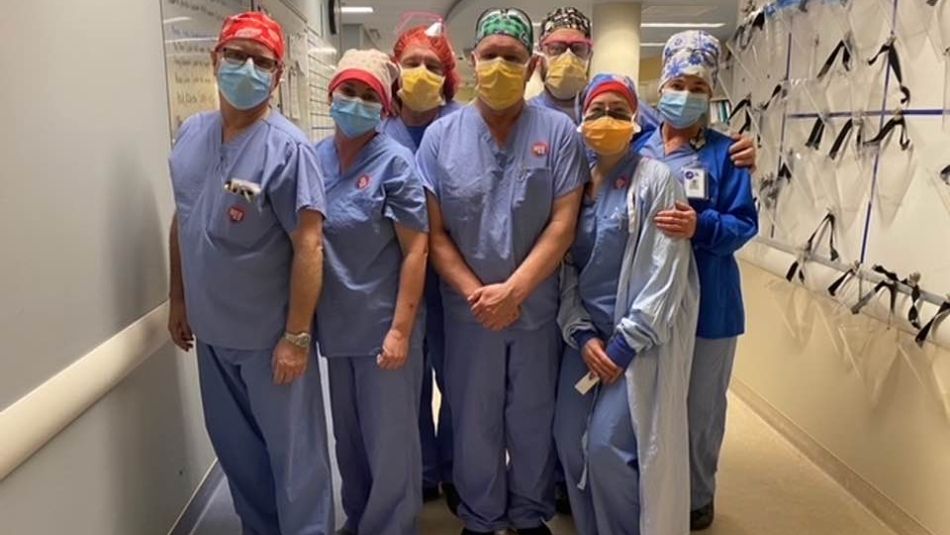
Share
March 11 marks the beginning of the third year since the World Health Organization formally declared COVID-19 a pandemic.
Workers in all sectors and types of workplaces have been affected by this public health crisis. They have been put at risk of transmission, and many workers have fallen ill or died as a result of this disease.
COVID-19 has caused nearly six million deaths worldwide and more than 37,000 in Canada alone. Over the past two years, front line workers have carried the heaviest burden while having to fight for basic protections.
Canada is currently experiencing the tail-end of the Omicron wave. Many governments are moving to loosen or eliminate vaccine and public gathering restrictions. Unifor is cautiously hopeful that this marks the beginning of a safe and stable return to regular, daily activity for many. We say this while acknowledging that other regions of the world are currently experiencing severe outbreaks of COVID-19, and that the pandemic is not over.
Unifor recognizes that the voice of workers was too often diminished and ignored during multiple phases of this pandemic. Workers were often left on their own to navigate potentially unsafe workplace environments, face the high risk of transmission, face the risk of hostile behaviour and the lack of income support or paid sick leave.
Throughout the pandemic, our union strived to put the health and safety of our members – and all working people – at the heart of our pandemic response. As such, we have aimed to provide factual resources, engage members on urgent campaigns and developed a vision for working people throughout this public health crisis. There will be a need to continue this work well into the coming years.
Workers will not forget the COVID-19 pandemic. Unifor members will continue to advocate for a workers-first response to this pandemic, with others to come. This means that we will:
- Continue to fight for vaccine equity, allowing access to life-saving vaccines in all countries, regardless of economic or social circumstances. This includes calling on all countries to support the proposed TRIPS-waiver.
- Fight for strengthened workers' rights to refuse unsafe work, advocate meaningfully for workplace improvements that prioritize health and safety, join a union and have a voice at the table where decisions are made.
- Advocate for large-scale modernization of ventilation systems in all workplace settings to protect against airborne transmission of viruses, such as COVID-19 and others.
- Call for the expansion of domestic production and local supply chains to ensure all necessary goods, safety equipment, medical equipment and medicine are made locally, while creating good, secure jobs.
- Redouble efforts to win fair wages and safer working conditions for front-line workers, both at the bargaining table and through political action.
- Defend public health agencies and call for greater funding, proper pandemic planning and dedicated public health staffing levels that allow for a health and safety response to pandemics or large-scale virus outbreaks in the future.
- Advocate for expanded public systems and infrastructure, especially in health care, education, long-term and elder care in cooperation with the provinces. Canada must ensure these essential public services can withstand future crises.
- Fight for an inclusive future where everyone is treated fairly regardless of their ability, age, sex, gender, sexual identify, race or economic circumstances.
Unifor has joined The People's Vaccine Alliance call to demand an end to Big Pharma’s monopoly grip on COVID vaccines, tests and treatments.
Members can support the call by tagging @JustinTrudeau and using the #ThePandemicIsNotOver hashtag.
The period of recovery from COVID-19 will be a long and difficult process. Unifor is committed to drawing the connections between the experience of working people as a whole and the need for strong social infrastructure, employment and public services that guarantee the well-being of everyone.
Lana Payne, National Secretary-Treasurer
Renaud Gagné, Québec Director
Linda MacNeil, Atlantic Regional Director
Naureen Rizvi, Ontario Regional Director
Gavin McGarrigle, Western Regional Director


